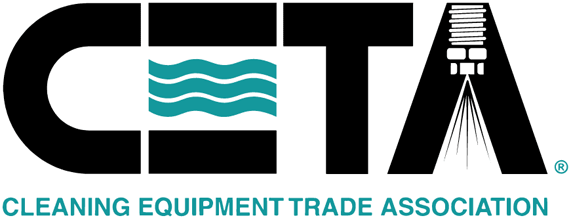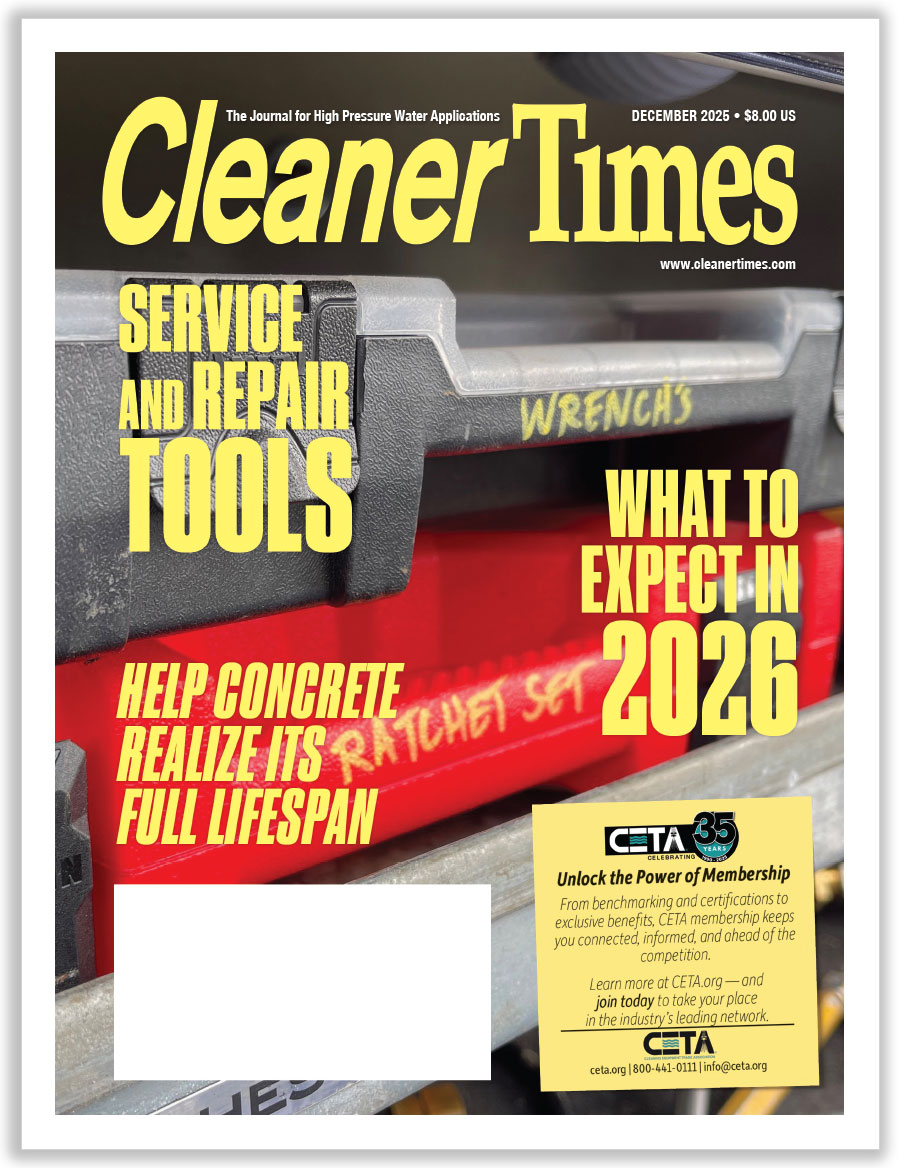
CETA Edge: Innovation Award Announcement and CARB–SORE Update
by Diane M Calabrese | Published June 2025

Innovation is its own reward. It converts the possibilities—for doing things better, faster, and/or more efficiently—to reality.
Even so, taking the time to recognize innovators invigorates everyone. “Look at what’s possible” is a sentiment that goes a long way to encouraging everyone to keep moving forward.
In 2025 the Cleaning Equipment Trade Association (CETA) introduces a new award to recognize an outstanding innovation from its ranks. Products that entered the market in 2024 and products that will enter the market by the end of 2025 are eligible for the award.
Not only will the winner of the award be honored at PowerClean® 2025 in Reno, Nevada (September 25–27), but entries from all contenders will be featured at the display booths of their respective manufacturers. A group of CETA distributors will serve as judges for the award. See the CETA.org website for instructions on how to submit entries.
SORE Update
The short of it is that the California Air Resources Board (CARB) has designated a transition year—or a grace period, if one prefers. Enforcement of the small off-road engine rule (SORE) was to have begun this year. Unless there is a change of course by CARB, enforcement will instead begin January 1, 2026.
The fundamentals of SORE have been covered several times in the pages of this magazine and in this column as well. In the interest of clarity, we note that here we will cover the two dimensions of SORE. The first is what the rule means for the pressure washing industry. The second is the action in which CETA is engaged to obtain changes to the rule.
What does the rule mean to the industry? The best source of information on this question is the FAQ made available by CARB in January. The four-page PDF document (https://ww2.arb.ca.gov/sites/default/files/barcu/regact/2021/sore21/carb_sore_faq.pdf) clarifies the delay in enforcement and the expectations for spark-engines less than or equal to 25 horsepower. (We urge everyone to read the document, which is done in frequently-asked-questions format.)
Here we cull from the cited document the salient points. Full implementation of SORE will begin with the 2026 model year. Owners and end users of older engines will not have to cease using them. CARB has developed a Manufacturers Advisory Correspondence (MAC) to explain to manufacturers how transition will occur.
The SORE rule aims to contribute to a future of zero-emission equipment (ZEE), but the future will be realized gradually as older equipment is retired and new, compliant equipment replaces it. Compliant equipment will carry the CARB-certified designation.
“CARB has not committed funds to assist sole proprietors with the purchase of CARB-certified pressure washer equipment,” explains Gus Alexander, CEO of FNA Group in Pleasant Prairie, WI. However, the FAQ from CARB cited above does note that purchase assistance will be provided to as-yet unspecified sole proprietors. So, this is one of many issues still to be resolved.
CARB promotes ZEE equipment as not only better for the environment but also easier to maintain and lighter in weight (ergonomically sound). “However, affordability and run time along with recharging time is still in question for professional pressure washer operations,” says Alexander.
The foregoing concludes the first dimension of the SORE issue. Now, the second issue: What are CETA and other professional groups doing to try to exact changes to the SORE regulation to ensure compliance is feasible?
CETA is working with representatives in the U.S. Congress, officials at the Environmental Protection Agency (EPA), and other professional groups to try to seek changes to the rule. It is also supporting the Outdoor Power Equipment Institute (OPEI) in its lawsuit to overturn the implementation of the rule.
Since 2020 CETA has known that the rule for small off-road engines from CARB in the Golden State would have implications for everyone. That’s because the rule will eventually have to be met by any manufacturer that wants to sell equipment (new or used) in California.
More than affecting sales, though, the CARB rules are serving as a template in other states (e.g., Maryland, Massachusetts, and Virginia). EPA cedes environmental regulation in California to the state because its standards are deemed so stringent.
The efforts by CETA and others have brought some results across the years. For instance, more time was granted to manufacturers of pressure washers to comply with SORE. (The current deadline for pressure washers is model year 2028.)
Discussion of SORE and efforts to obtain adjustments to the rule will be an important component of the September meeting in Reno. And in the realm of positive thinking and significant breakthroughs, the CETA Innovation Award may bring forth changes that will help—or eventually help—meet regulations that aim to reduce emissions.





